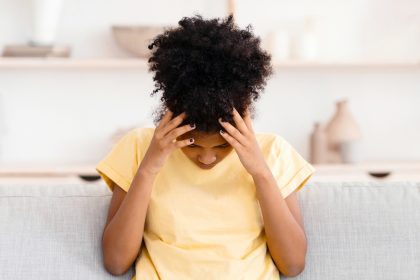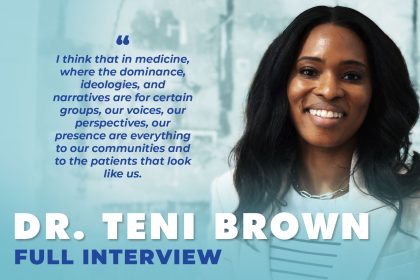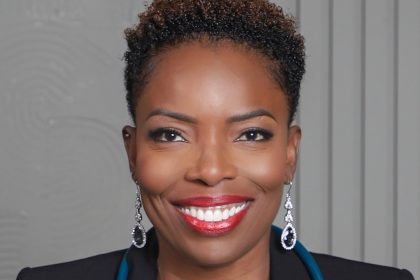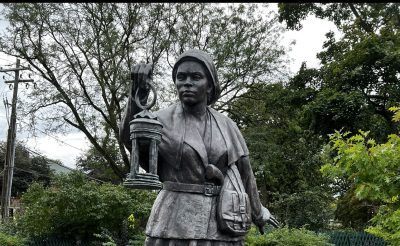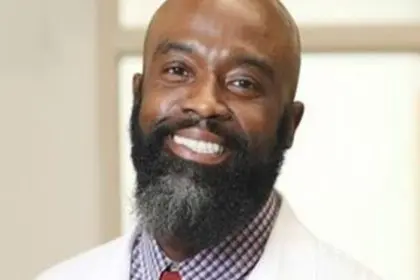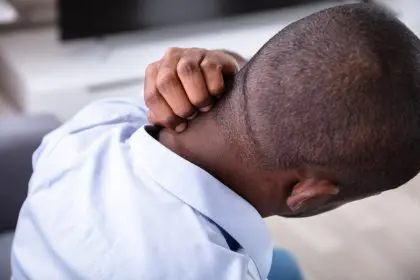In an inspiring conversation with Rolling Out’s Health IQ, Dr. Rachel Delsarte, a distinguished primary care physician in Atlanta, opens up about her remarkable journey in medicine. As one of only 2-5% of Black female physicians in the United States, Dr. Delsarte’s story exemplifies resilience and dedication. A Morehouse School of Medicine graduate with a Master’s in complementary and alternative medicine, she brings a unique holistic approach to healthcare while breaking barriers and mentoring the next generation of medical professionals.
What inspired you to pursue a career in primary care?
I would have to give this to my mother, my mom is a pharmacist in the Atlanta community. I grew up initially wanting to go into pharmacy, and so I spent a lot of time with her, being at her job and seeing how she interacts with her community of patients, and I thought, I want to do the same thing, but once I got to Spelman, I realized that I wanted to do more of the pre-med route versus pre pharmacy, so I chose pre medicine. Then during medical school I ultimately settled on primary care because it kind of combined all of my interests into one specialty, so it was a perfect fit for me.
How has your experience as a Black female resident physician shaped your approach to patient care?
I feel like I treat each patient like a family member, honestly, whether it’s a young black girl that looks like me, or an older black man that looks like my grandfather or uncle, I’m always treating those kind of patients like they’re my family member, even patients that are of different races, I always treat with respect, and just think about how I would want to be treated if I was on that other end. I always just go in with that level of empathy and care with each patient.
What challenges have you faced in medical training?
Definitely a lot of challenges, even though I went to Morehouse School of Medicine, where I felt very supported by my community, I did experience some sexism. When I got into residency, I did experience some racism that I just had to overcome and just think of my future patients and keep that in mind, I’m doing this for my community, there’s only 2% of black female physicians in the United States, I think that number maybe hovering around 2 to 5%, but it’s a very low percentage of black female physicians in the United States, and so on social media, you may see a lot of us trying to increase our presence, but in the real world there’s not that many of us. A lot of us experience those racism, classism, sexism, type of things, and you just have to keep yourself encouraged, and just realize that the goal is much greater than all of that.
How has Morehouse School of Medicine prepared you for the challenges you see in the community?
They definitely prepared me well, I’m getting chills just thinking about my experience, I’m so grateful to have gone to Morehouse School of Medicine and to be around so much black excellence that made me so confident in serving my community and other people of other communities, too. I think it definitely made me a well-rounded physician that is prepared to service anybody from any type of background, and I’m just so grateful for that.
What are some misconceptions about primary care that you wish people would understand?
I think if you’re a pre-med student, or if you are thinking about medicine in some way, people may think primary care is an easy specialty, or people that go into it are not that ambitious but primary care is actually pretty hard, because you are expected to know a breadth of information. Now, you may not be expected to know things that a cardiologist or a nephrologist, a kidney doctor, may know, in like detailed information about specific systems, but you are expected to know basic information about all these different organ systems in our body and how to deal with them in acute settings, or you’re basically the first encounter that people have within the medical system, and so it’s our jobs to point them to the specific care that they need or just address that issue if they don’t have the resources to go to a specialist. I think that people should put some more respect on primary care because we do do a lot, and we’re expected to know a lot, and it also offers the opportunity to venture off into different businesses. If you want to do that, you don’t have to just stay in one box with primary care, and that’s what I love about it.
What would you say was the best part about being a resident and achieving your dream?
I would say my community at Morehouse, I had a wonderful group of friends at Morehouse School of Medicine that I don’t think I would have survived if I was not in that friend group. We studied together, we were on rotations together, we partied together, and we just had each other’s back, so I feel that it’s so important and pivotal in my journey to get here, because I think without that community I wouldn’t be as confident and strong, and that’s just something that I found while I was at Morehouse.
What advice would you give to other young Black women who want to become a doctor?
Definitely find your tribe wherever you are, if you’re in high school, if you’re in undergrad, or if you’re already in medical school like, find other people that have similar goals so that you guys can encourage each other. Definitely find a mentor, I’ve had lots and lots of mentors, I would say my mom was probably my first mentor in the medical field, but I’ve had other mentors that were physicians, were PhD doctors that always poured into me, so I think that that is very important.
Other advice would be, if you have something that God has placed on your heart to do in this world like, don’t let anything stop you from doing that just because something is hard like you figure out how to do it. Everything in life that’s worth it is going to be hard, medicine included, but if God place it on your heart to become a physician to help future generations, you figure out how to do it, and you just do it.
Where do you see primary care evolving in the next decade?
I definitely think something is going to have to give, and something’s going to change soon, there’s so many issues within the healthcare system already. Doctors are burnt out, nurses are burnt out, all people in all facets of the healthcare system are burnt out, and patient care is not much better. Patients are still sick, and they’re not getting well, and with that, insurance companies are making lots of money, hospital systems are making lots of money, but I don’t think that they’re really addressing the root cause of like why we’re in this, to begin with, and that is to care for patients that is, to make people healthy.
So I think something is going to give soon. There is a model that is becoming more popular, which is the direct primary care model. It’s kind of similar to a concierge medicine model where it kind of leaves out the insurance companies altogether, and it’s just a direct relationship between the patient and the doctor. So the patient is paying directly for the services the doctor is providing, and it’s a more streamlined relationship. The patients have more access to the doctors, it may be a little bit more expensive for patients, but the care on the other side is 10 times much better.
What strategies do you use to build trust with patients?
It goes back to treating each patient as you would a family member or somebody close to you. I always make sure I introduce myself, and I always make sure that I know the patient’s name, and I’m pronouncing it correctly. I introduce myself to the family members. I’m like, “Who do you have here with you? Who is this? Am I okay to talk about your information in front of them?”, I just am very polite with each patient, no matter how young or old they are, I think showing them that level of respect is important, because people have a certain level of respect when they go to the doctor, especially older generations. You’ll see them coming to the doctor dressed in their Sunday’s best, because they just want to show respect to the doctor. I think it’s important for us as physicians to show respect to the patients. So those basic, just introduction things I feel like is key, for building trust with patients.
How do you balance the demands of residency and self-care?
Self-care is so important to me, it has always been important to me, even before I was in medical school, but I think I made it more of a priority in medical school and residency, and I’m so glad that I had built a foundation beforehand of just taking care of myself. So things that I definitely prioritize are exercise, I try to exercise daily, if I can, meditating, journaling, talking, and connecting with my tribes, with my friends and my family. I think that going through training, it’s so easy to isolate because you want to have tunnel vision and you want to get to the goal, but you do need people. You need people to bring you back to reality and just take you out to lunch, and kind of keep you grounded while you’re in this hard space of studying and everything. So those are very important to me, and now, being a new mom, it’s even more important to me to balance those things. So it’s something that you have to prioritize and schedule, but just be so intentional about it, it’s a very intentional process, but it’s worth it at the end.


